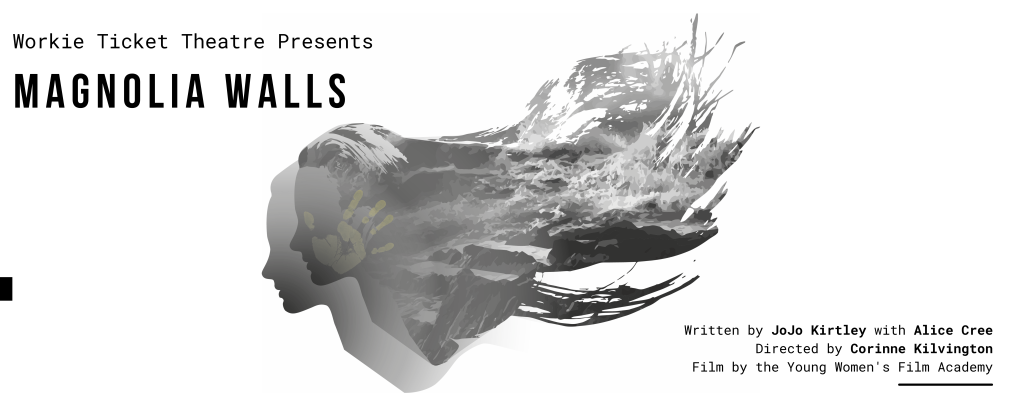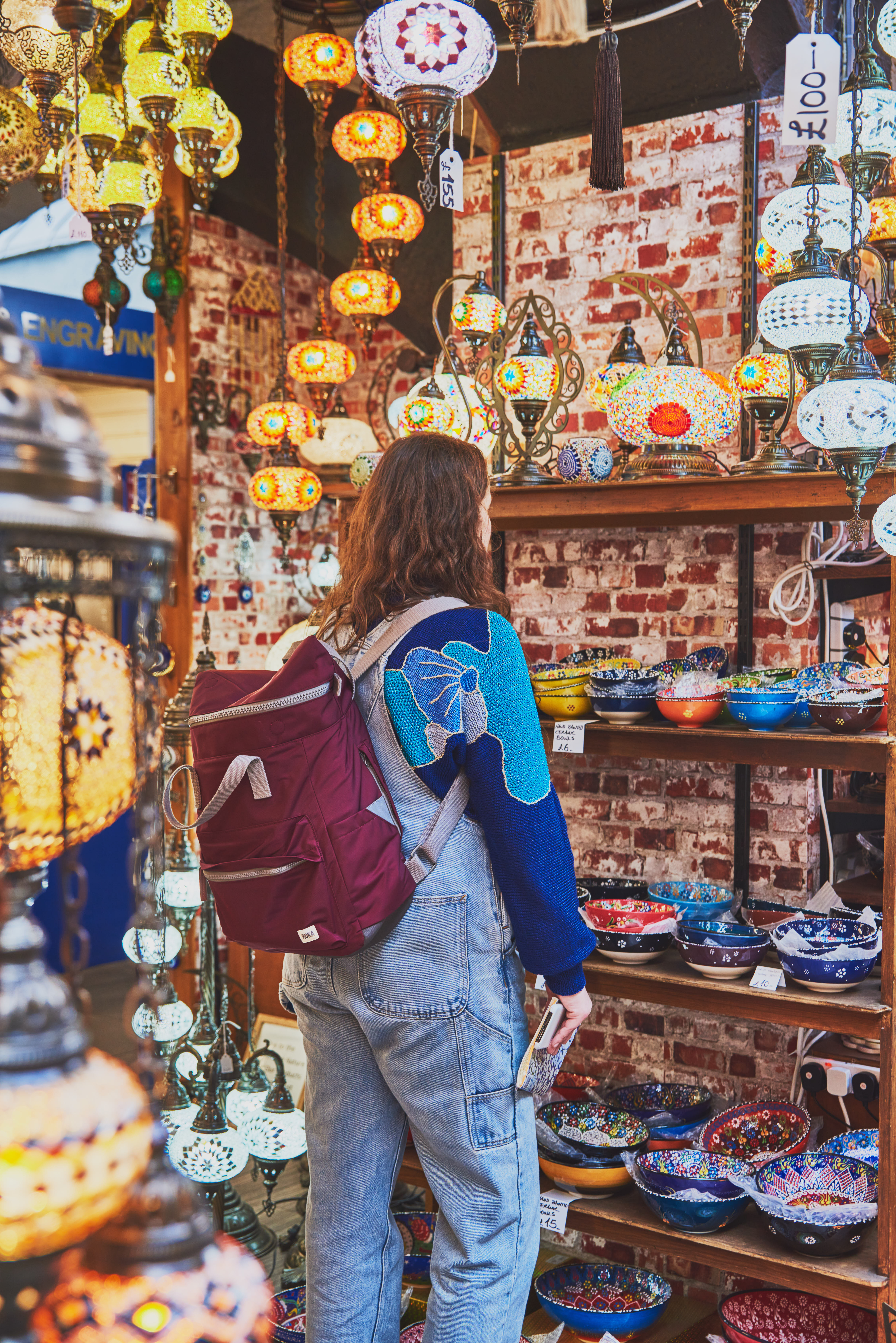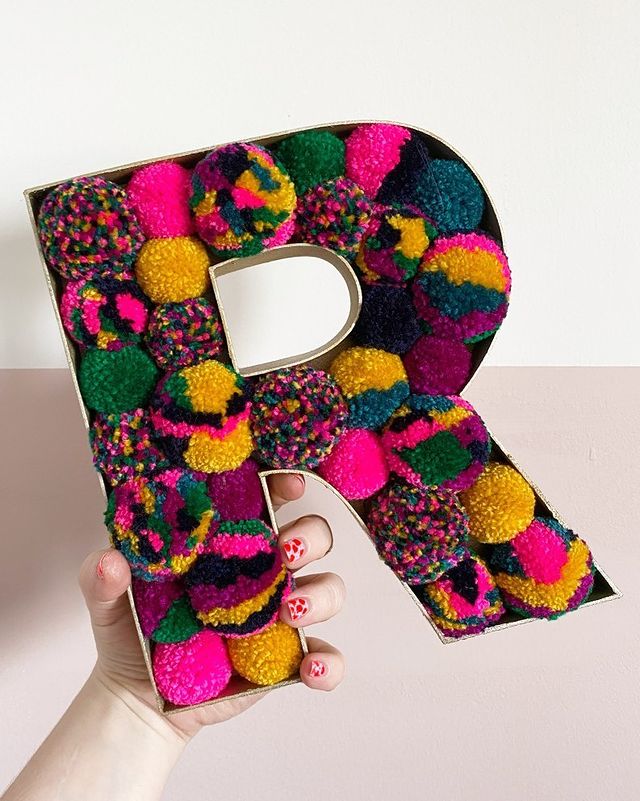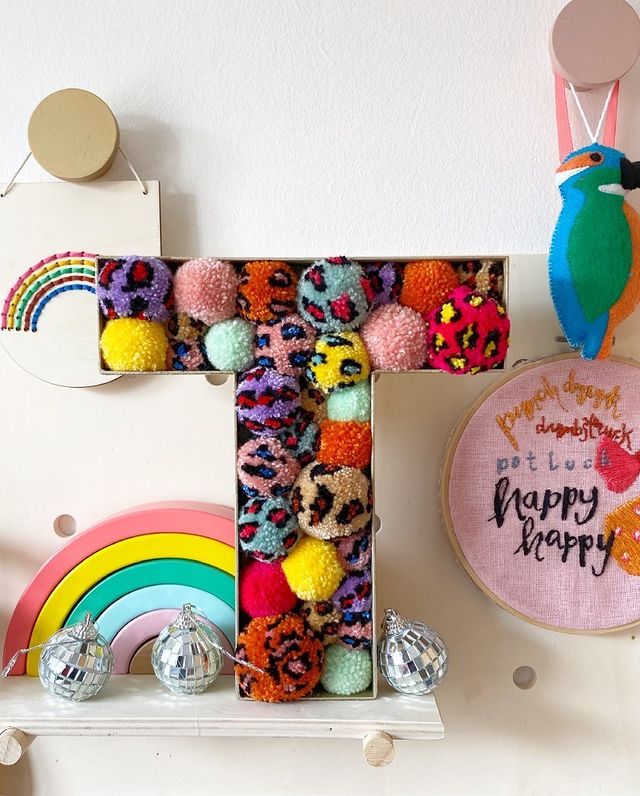Working with and celebrating unashamedly bold, brave and brilliant folks is one the reasons I set up The Culture Vulture and it’s what gets me out of bed in the morning with a spring in my step. Strong empowered women, empower women and my favourite empowered women are ones that use their power to enable, platform and amplify unheard voices. For me, it’s all about building that type of community – ecosystem over egosystem every day of the week.
One of the theatre companies that I connected with early on in my Culture Vulture journey is Workie Ticket Theatre. They caught my eye for the name Workie Ticket – being a workie ticket in the North-East means you misbehave, but progressively it’s been a really positive term that alludes to the fact you disrupt the norm, challenge convention and not afraid to speak your mind; absolutely all about that. Workie Ticket Theatre are just that – an extremely talented bunch of workie tickets, enabling stories of unheard women and their (often) everyday forms of social activism to be heard. And they continued to do just that across the pandemic, through a project Womxn Up! (more on that later!).
Ahead of Workie Ticket Theatre’s new show – Magnolia Walls at Northern Stage 24th – 25th June, I thought it was time for another Culture Vulture interview – as you all need to know about this theatre company, their ethos and amazing work – especially the Artistic Director JoJo; she’s not only a brilliantly talented human, she’s also grown into a gorgeous friend of mine.

Magnolia Walls shines a light on the impact of war and military life, based on research by Newcastle University. Set in Northumberland, this play follows the tumultuous lives of Roxie and Pen, two military wives who form an unlikely ‘Thelma and Louise’ style friendship. Drawing on interviews, focus groups, and a series of theatre-based workshops with a group of 35 military partners, ex-partners, and widows from across the country, the research sheds a light on the long-term consequences of war and military service on personal relationships between armed forces personnel and their spouses and families.
As you’d expect, the play tackles important topics such as domestic abuse, trauma, Post Traumatic Stress Disorder (PTSD), suicide, and racism. It also exposes the isolation and lack of community support experienced by many military spouses and partners, most of whom are women. But it does this in a very real human way, there is light within that darkness.
‘Magnolia Walls’ is based on research by Newcastle University’s Dr Alice Cree and Dr Hannah West, in collaboration with Workie Ticket Theatre CIC and funded by the Economic and Social Research Council.
It is hoped ‘Magnolia Walls’ will help start a conversation about what it really means to be a military spouse in 2022. And that is what really interested with this project – the idea that academic research, can be used to underpin a theatre show that shares the real-life experiences of military wives. Theatre becomes the creative tool to communicate and bring to life real academic research, making it meaningful, more accessible and a powerful vehicle for social change.
I can’t wait to see Magnolia Walls – there are limited tickets left ; get them HERE – read on to hear more from Team Magnolia Walls – Artistic Director JoJo Kirtley and Dr Alice Cree from Newcastle University……

Hi both, first up – can you introduce yourself for my fellow Culture Vultures….
JoJo- I’m JoJo Kirtley, the artistic director of Workie Ticket Theatre. I write and produce plays, facilitate workshops and I’m a mam to three little workie tickets! Workie Ticket is a female-led, Tyneside-based theatre company. We provide a platform for women to have their say through drama and amplifies unheard voices and stories. My own work has been performed at big venues such as The Lowry but you can’t beat working in community centres and putting on plays above pubs.
Alice– I’m Alice Cree, I’m a researcher at Newcastle University based in the School of Geography, Politics and Sociology. My work focuses on gender and the military, particularly the use of creative methods in military research. I’m the research lead for the Conflict & Intimacy project which our play Magnolia Walls is part of.

photography credit: Denise Kidger
What does being a “workie ticket” mean in 2022?
JoJo – Being a ‘Workie Ticket’ in 2022 is very different to what it was when I first set up Workie Ticket in 2017. Lots has happened and the World has changed. My World has changed too; I was a mam of boys then and now I have a little girl too. I guess seeing the #MeToo movement unfold in different industries, the pandemic’s impact on women, Reclaim the Streets etc… changes everything. Seeing all that has made me want to push harder, not give up and definitely not shut up. My Grandad Joe used to call me a ‘Workie Ticket’ so I adopted this as the name to reflect the fact that I wanted to shake things up a bit; but now…. I want to shake things up A LOT.
I loved your project Womxn Up – it was such an important project and you all can access the audio plays and recordings now HERE! For those that don’t know – What was Womxn Up? and how did it come about?
JoJo – Womxn Up? was such an immense project and I am so proud of it and grateful that we got to create during the pandemic. Womxn Up? was our response to pandemic, it highlighted North-East women’s stories through a series of audio plays and real-life interviews. We also made a film called ‘Her Primal Scream’ – you can watch that HERE.
For this project, we explored the impact the pandemic has had on women at home, work, in the community, on our mental health and on our bodies. Our Womxn Up? Project consisted of three, brand-new audio response plays all inspired by our research which were written, performed, directed and produced by women from the North-East. My play was about my Nana. I wanted to explore how it must have felt for our elderly watching the World fall apart but also questioning what was going on too.
What did you learn through the Womxn Up? project and listening to the experience of all those women?
JoJo – I learned how broken we all have become because of the pandemic. Me included. I don’t think it will ever be the same again.
Although (and sadly) I expected the bullshit misogyny and the massive impact it had on women; the Handmaid’s Tale horror stories but I underestimated how tough and rough it would be for so many. That kind of broke me…
I remember interviewing these sex workers in South Shields with Lauren (Workie Ticket producer and Womxn Up? editor) and we both came out shaking our heads in disgust; these women had been treated terribly and taken advantage of by men during the pandemic.
Whilst there were many terribly sad and tragic stories that came out of our research but there were actually some lovely positives; like socially-isolated, lonely women finding connections with others online and real community champions who worked tirelessly to support others. One story, I loved, was a couple who fell in love with each other again because they got a chance to spend time together and re-engage with each other.
Well that makes my heart sing – Womxn Up? has been submitted into a museum archive – you’ve enabled these stories to have a life and place forever….
JoJo – This is going to happen this Autumn with the Feminist Archive in London which is at the Bishopgate Library. It’s exciting. I love how they don’t just want to archive our transcripts or recordings; they’re also after notebooks, photos, workshop sessions and a branded T’shirt!
A little team of Workie Tickets will be heading down South to accession the project and all that we have learned about the pandemic and its impact on women in the North-East. This will be preserved so in hundreds of years’ time…our ancestors will learn about the pandemic through our stories, Herstories.

In your opinion, how do you think the pandemic impacted womxn?
JoJo – Globally, an increase in domestic violence and sexual exploitation occurred during the pandemic …women were denied access to maternity appointments, labouring on their own, some being forced to wear masks whilst doing so. Women were being forced to miscarry on their own…just horrible situations. Family courts were taking place in homes via Zoom. I don’t know what genius thought this was acceptable when survivors of abuse were having to zoom their abusers into their own living rooms with their children next door, most likely listening but it happened and shouldn’t have.
We heard stories from women denied contraception and sexual health appointments…they were juggling parenting, home-schooling, adapting to working from home without support in the form of childcare. Health including mental health was sacrificed while prioritising their children and family needs, loss of income, employment, wages, prospects and increased extra caring responsibilities…
It was a big step backwards for women and I think it’s only the beginning of what is to come.
The world is a difficult shit show for women’s rights at the moment – you have a little girl – what do you hope for her future?
JoJo – I hope Luna turns out to be a ‘workie ticket’ just like her Mam and gets to be who she wants to be. Most importantly, I want Luna and her friends to be able to do what they want with their bodies, without being dictated to; that would be my ideal future for them all.

Tell me about Magnolia Walls – what is the piece of theatre/story?
Alice – ‘Magnolia Walls’ is based on 2 years’ worth of research by myself and Hannah West at Newcastle University as part of the ‘Conflict & Intimacy’ project, with funding from the Economic and Social Research Council. What we’ve been trying to do is look at the military home as a site of military violence. Exploring the question: ‘how does war impact home life and intimate relationships?’ So, what are some of the unseen, positive but also maybe not-so-positive impacts of military service on their families? What does it really mean to be the partner of someone in the forces today?
‘Magnolia Walls’ is a way of telling some of those stories and asking us to rethink some of our assumptions about military family life.

JoJo – ‘Magnolia Walls’ challenges the stereotypes of the military partner and explores how home life and personal relationships are impacted by war. We wanted to set the play in the North-East so it’s set in different areas such as Blyth beach. We also wanted to create characters that represented our real military partners and came up with Roxie and Pen who form a ‘Thelma and Louise’ style friendship.
Roxie is this rocker, a self-proclaimed ‘Geordie’ Stevie Nicks and she instantly bonds with Pen the wanna-be writer, veteran and naval officer’s wife. Both have supported their husbands in their careers and choices, but now it’s time for them to shine…or rebel! We love a female rebellion!

photography credit: Denise Kidger
Why military partners? What is it about their voices and experience you want to explore and share?
Alice – People have always been interested in war stories, but we don’t often hear from the perspective of their military families. And when we do, those stories are very heavily politicised and geared around narratives of heroism and sacrifice. We wanted to shed a light on the kinds of experiences that we don’t usually hear about, ones that perhaps challenge or complicate our understanding of life in a military family.
I think something that is often not recognised is that militaries absolutely rely on the unpaid labour of military spouses. So that’s stuff like childcare, looking after the house and the home, but also the emotional labour of providing love and support during difficult periods of deployment.
And, because of the make-up of the armed forces, that labour is mostly undertaken by women (although of course, not exclusively!) Plus, spouses are at the very ‘front line’ when it comes to providing support for mental health problems experienced by a lot of veterans and serving members of the armed forces. Without all of that work, the military wouldn’t be able to do what they do. Effectively you’ve got this massive, complex institution that is all about state power and security, but at the root of it all, holding it all together are the (mostly) women who do it because they love their partners. Which is really interesting.
Something that I hope will come through when watching Magnolia Walls, is the diversity of experiences that our participants have had. This ranges from struggling with the expectations of being a ‘military wife’ when they have chronic health problems or disabilities, to navigating the constant presence of the military in their homes, their sex lives, their relationships with their children.
They are an amazing group of people and I really hope we have done them justice!
What do you want the audience to take away?
JoJo – I generally think they’re going to take away a lot of warmth and love from this play. But the audience will also be shocked at some of the themes we are exploring. I think you’ll all genuinely fall in love with the women who we have worked with. Essentially Magnolia Walls is a sort of love letter to them, thanking them for being so courageous when sharing their stories with us.
How are you feeling about staging the play, the first for several years due to the pandemic?
JoJo – Lucky to have the opportunity. Nervous. Fingers crossed for me.

Can you tell me about the research element of the project?
Alice – This has been a big piece of research involving nearly 40 participants who we have worked with quite intensively since the project officially started in August 2020. Hannah and I conducted 1:1 interviews with everyone, and then we had a series of about 20 theatre-based, discussion-based, and writing-based workshops that were facilitated by Workie Ticket Theatre Company.
By the end of the process, we had a HUGE amount of material; we will probably spend the next ten years publishing! The biggest piece of learning that came out of the research was that the military often has a controlling and even violent presence in the lives of military spouses – and in ways you might not immediately expect.
But you’ll have to see the play to hear more!
What is it like being a military partner in 2022 – what resources and services are available for support?
Alice – In many ways, it is the same as it has always been; very few institutions change as slowly as the military! Much of the support for partners and families is provided by charities. There is still a lot of work to be done in making sure folks can get the kind of support they really need.
JoJo – The problem is, where the funding is going and if the right organisations are receiving it. That has to be addressed too.
Tell me about the characters Roxie and Pen and their relationship? How did those characters develop?
JoJo – I was really interested in exploring female friendships as a whole and also what it was like to have friendships, that you had to give up suddenly because your family was being posted somewhere else. I remember when Alice and I had our first writing meeting and I said…we need two characters that embody the women we’ve been working with; one of them needs to kick-arse and the other one learns how to kick-arse like Thelma and Louise, so we created Roxie and Pen.

Tell me about the chorus element of the show?
JoJo – The chorus are a pre-recorded element of Magnolia Walls and are made up of our real military wives (and a husband!). Originally, the idea was for them to perform on stage but the pandemic stopped that, so we decided to fuse film and theatre together. They’re very excited to be part of the show and have spent some time rehearsing and learning performance skills. They’ve been amazing and I am so proud of them.
Alice – They are people who have been involved in the project since the beginning; people who have been so honest and brave in sharing their experiences with us. So, it’s been really amazing to see them use their own voices to tell those stories. It is very powerful.

Tell me about the creative team behind Magnolia Walls?
JoJo – We have a lush creative team and I am so proud of them. We did the usual auditioning and recruitment.
When we appointed Corinne as Director, I was so happy. I’ve worked with her a few times before and she is one of the best directors in the North-East. There is no BS with Corinne, she cracks on and gets things done. Just the way I like it.
I also had to take on extra producers to assist me -Ashlea Sanderson and Lauren Sanderson who have been ace. We have a consultant Helen-Marie who is a real military wife too. We have Simon Cole designing our lights and film-wise we’ve been working with the Young Women’s Film Academy.
Our professional actors are Alex Tahnee and Rachel Brownstein who came to an audition we held in April. There was a spark between them, so I knew they had to be our Pen and Rox. We are also really excited to be working with The Set Guise who are creating our ‘magnolia wall’.

What do you hope happens as a result of the show? What do you want the legacy of this work to be?
JoJo – I want the women to feel empowered and listened to. I hope we can turn this into a film and maybe tour the play. We’ve also talked about a festival…
Alice – We also ultimately want people in positions of power and influence to sit up and listen. Military partners and spouses put up with a lot of shit, and they are not getting the support that they need. I hope that the play will help move that conversation forward.

This piece digs into military home lives and the impact of war and being in the military has on the day to day. Across the pandemic and lockdowns, we can all relate to feeling that work and the impact of pandemic stress, impacted our homelives – like a pressure cooker. That’s how I imagine, it must feel all the time for military partners – rollercoaster of emotions, trying to do your fucking best and hold the shit together, feeling isolated but stuck together at moments of stress and so much more. This makes this piece relatable and relevant to all.
Alice – I think that’s absolutely right. Our participants also said a few times that the pandemic forced people to get comfortable with plans being changed or cancelled at the last minute – something that military spouses are very familiar with! What’s also really interesting is that in the pandemic, we’ve seen the ‘front line’ take a different shape, and suddenly it became doctors, nurses, paramedics, hospital cleaners and so on who were the ones risking their lives to keep us safe. And I think our research and the play both potentially raise really interesting questions about what the long-term impacts of that might be for NHS workers and their families. Our participants talked not only about how their partners changed after traumatic military experiences, but also their own lingering kind of ‘PTSD’ attached to difficult periods of deployment or their spouses going off to war. Is that going to be the same for the families of doctors and nurses?
Time will tell, I suppose.

You hinted at an upcoming project you got a small pot of funding for – can you tell us more?
JoJo – We have two new projects. One of them is an extension of the Womxn Up? project. It’s called #AllMenCan and aims to engage boys and men to fight against VAWG.
And the other is our ‘Drama for Wellbeing’ programme which I started in 2019; pre-pandemic and delivered a lovely session to a group of female veterans. It’s a fusion of a programme I delivered years ago for Manchester Adult Education, a self -care course and drama activities. Our launch is in my hairdressers- All That Sass. Bringing drama to people in unexpected places. I want to show how you can use drama to support better mental health and self-care.
Then what’s next for you and Workie Ticket – do you have another project on the horizon?
JoJo – Always! We hope to maybe look at the female veteran project again and we’re working on another bid to explore what it means to be a ‘Geordie’ woman in 2022.
Anything else you want to tell me about?
JoJo – I am really proud of Magnolia Walls and the work we have done to make it happen. It’s been an immensely tough year for me personally and to get to this point is very overwhelming. I promised myself during the pandemic that I’d never take this job for granted so I’m happy at whatever outcome. I’m lucky to have had this opportunity and can’t thank Alice enough for being so encouraging and supportive throughout this process.

Thank you JoJo and Alice – fascinating interview and I can’t wait to see it. There are still some limited tickets for Magnolia Walls at Northern Stage – you can nab them via: https://northernstage.co.uk/whats-on/magnolia-walls/ Friday 24th June, Newcastle University welcomes the audience to a Q & A after the performance. Friday show is live captioned and Saturday show has BSL interpreter.
















































































































































